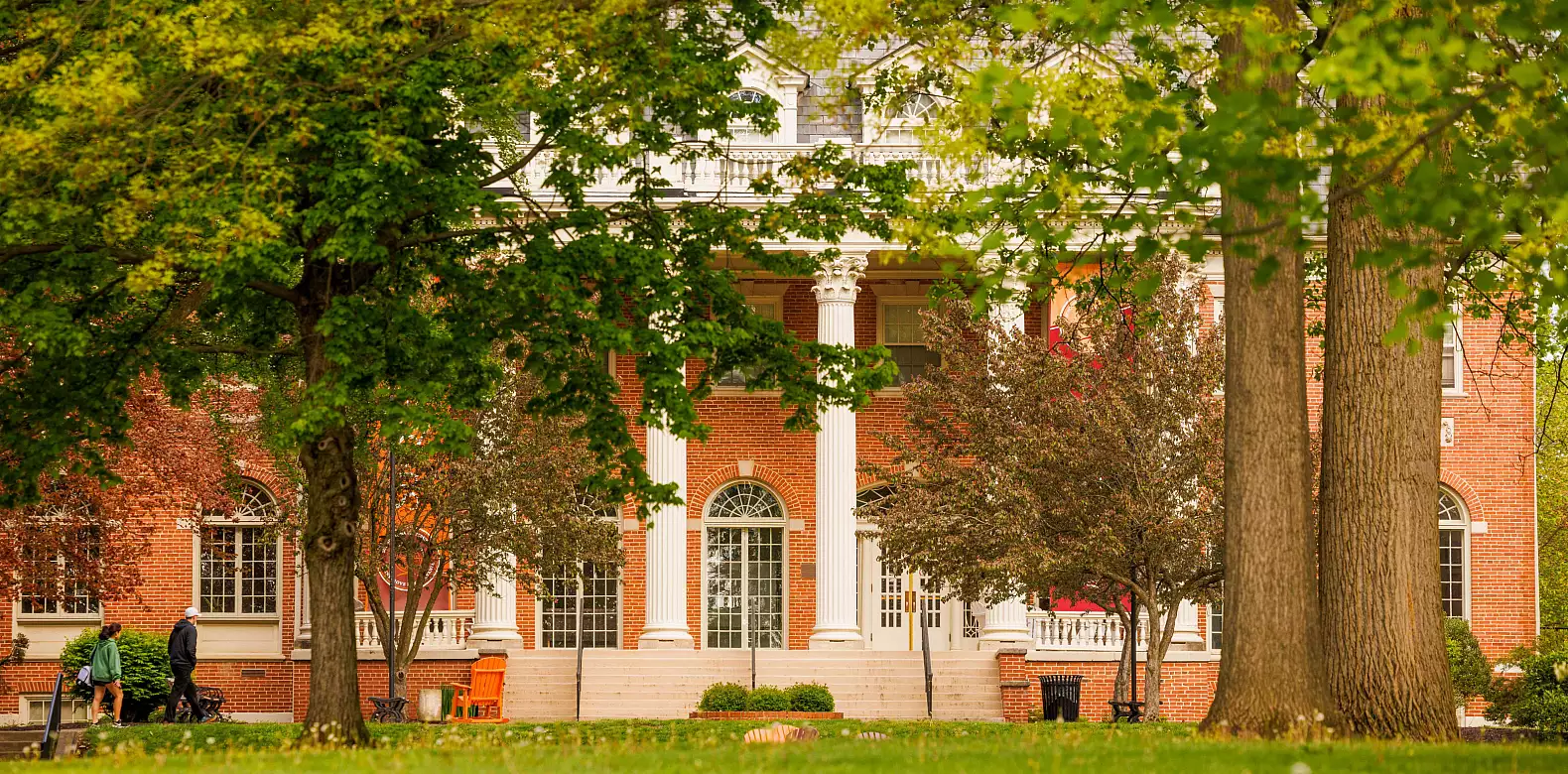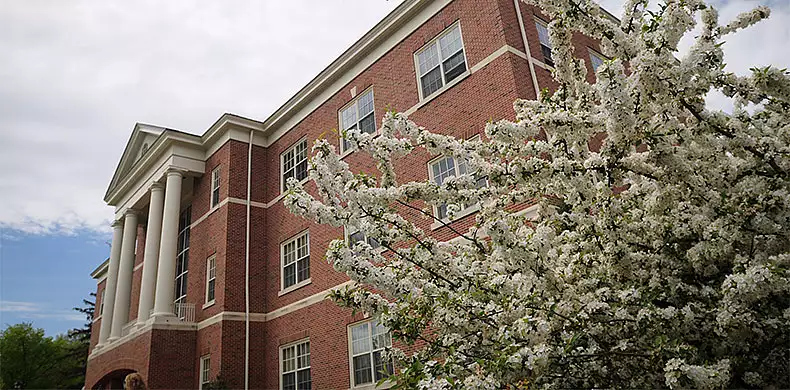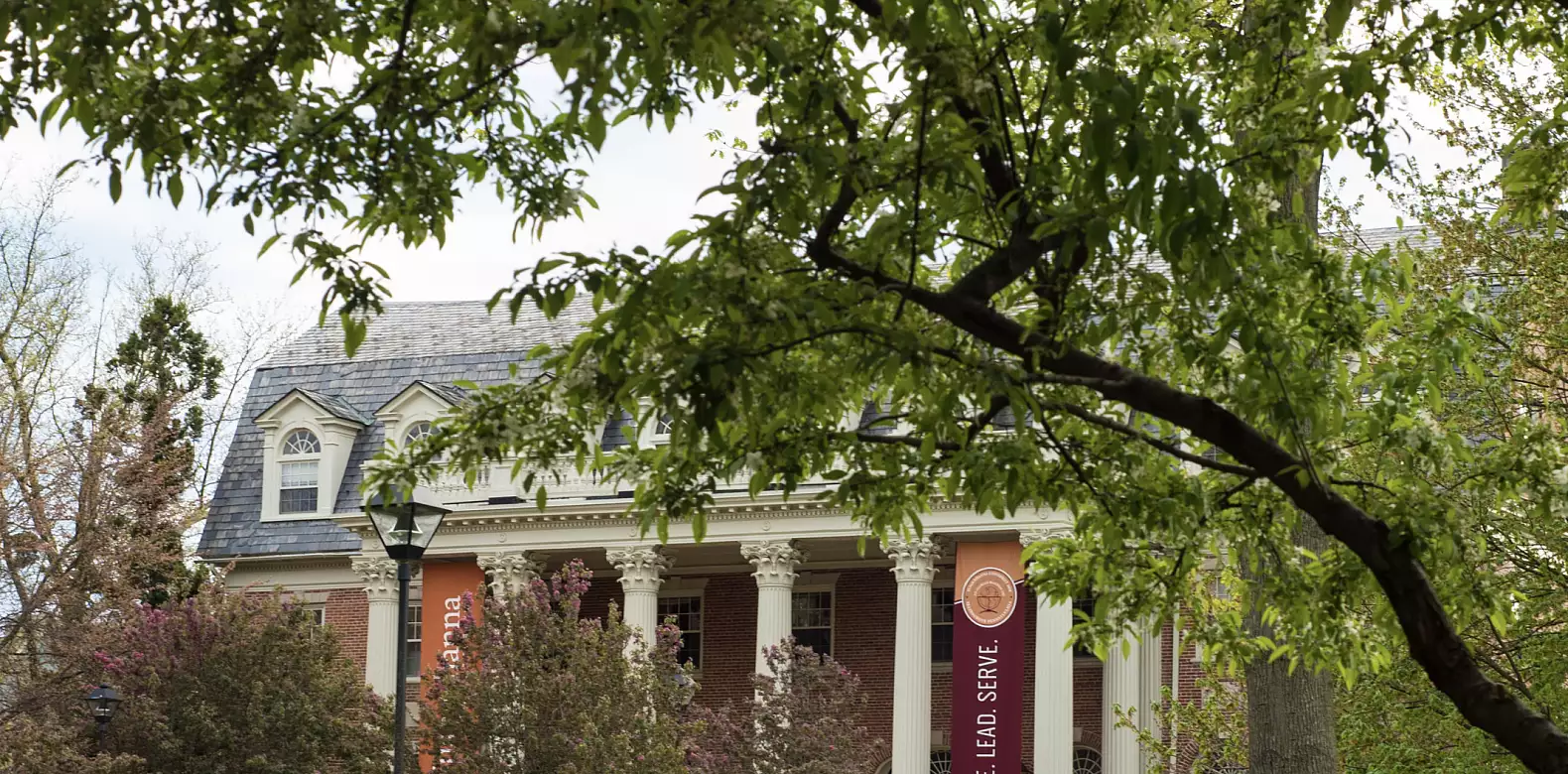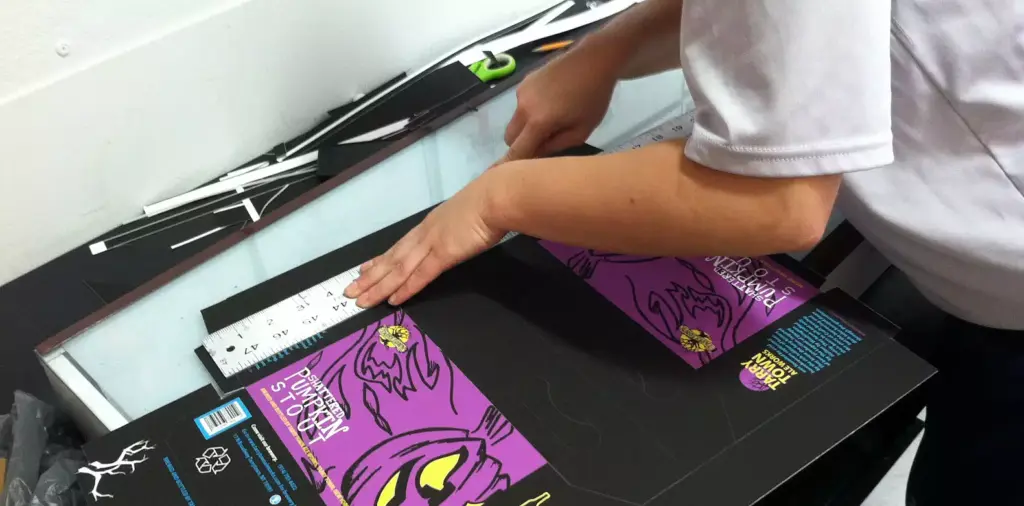(Approved by the Board of Trustees October 28, 2019)
At Susquehanna University, we educate students for productive, creative, and reflective lives of achievement, leadership, and service in a diverse, dynamic, and interdependent world.
Academic excellence is the lifeblood of Susquehanna University and the driving force that leads to lifechanging experiences for our students. Our students benefit from a global education, student-faculty research, internships and practicums, creative work, service learning, and volunteer work. A Susquehanna education comprises the experiences students need to determine the lives they wish to lead, and the knowledge, skills, values, and networks to achieve their full potential.
Our faculty members are dedicated scholars and teachers who make close connections with students as they inspire them intellectually and creatively, expanding their knowledge, skills, and understanding of their place in the world. Staff members serve as caring mentors whose work bolsters our academic mission. These collective experiences help students to thrive personally and professionally.
This strategic plan reaffirms our core academic principles, our ethics, our commitment to each other, and the importance of engaging all voices in pursuit of new, equitable ways to creatively solve the challenges of our world.
Our Strengths
Susquehanna University is distinguished by rich and varied academic programs that develop distinctive liberal-arts skills and experiences and yield tangible results. We are committed to diversity and to serving students from all socioeconomic backgrounds with an emphasis on global education, project-based learning, service learning, and other applied learning experiences.
Our GO program provides a singular advantage to all our students as they consider the intercultural and international ramifications of their lives and work. Our practical application of the liberal arts is an integrative model of learning. We directly tie our curriculum to our co-curriculum and link campus-based research, off-campus study, internships, and community-based learning to our learning goals. These experiences support students as they develop into engaged citizen leaders who will fulfill a promise to “Achieve, Lead, and Serve.”
We are a national leader in independent undergraduate student research and creative work, one of only three higher-education institutions to require a study-away experience, one of only ten private undergraduate colleges with an AACSB International-accredited School of Business; and an emerging leader in environmental studies and river and stream ecology.
Important assets include committed faculty and staff, enviable facilities, and a dedicated alumni base. Alumni speak with passion about how their lives were changed at Susquehanna by a faculty and staff who helped them realize their future success. Graduation rates exceed national averages, and employment rates and median earnings of our alumni are well above the averages for four-year graduates nationwide.
Susquehanna is resilient and adaptable. We have built a strong foundation through a combination of enrollment management, fundraising, astute fiscal oversight, and thoughtful innovation. Our optimism is buoyed by the fact that we are delivering the top-quality education we promise our students, and our graduates build careers and lives of meaning because of Susquehanna’s superb teaching and mentoring.
The External Environment
This is an especially challenging time in American higher education. We face declining public support for and confidence in higher education; intense scrutiny of tuition increases; and an increasing focus on affordability, access, and student debt.
Susquehanna is in a hyper-competitive market. This situation is exacerbated by a geographic redistribution of potential students and an impending national decline in traditional-aged students. The market share for residential liberal-arts colleges is also threatened by a public that is increasingly questioning the nature and value of what we offer our students.
To guarantee sustained prosperity, Susquehanna must execute a bold, mission-driven plan that is student-centered, builds on institutional strengths, improves operational vitality, and expands our market share. The implementation of this plan will be coordinated with the current capital campaign and a focused campus masterplan. These efforts will be supported by a significant branding and reputation building campaign.
Our Guiding Values
Susquehanna University is:
- A selective, residential, national liberal-arts college focused on deliberate preparation for professions, careers, and engaged citizenship;
- A learning community that supports excellence in scholarship, research, creative activity, and collaboration in and out of the classroom among faculty, staff, and students;
- A diverse community that cultivates inclusive excellence, intercultural competence, and global citizenship;
- An innovative community whose faculty and staff are its greatest resource;
- A collaborative community that expects ethical behavior and mutual respect from all its members;
- A responsible community committed to financial and environmental sustainability;
- An engaged community that inspires and empowers alumni to be perpetual stewards of their alma mater;
- A welcoming community that honors its Lutheran heritage through a commitment to service in the region and the world and the free and open exploration of ideas; and
- A beautiful campus that fosters a holistic living and learning experience.
The Plan
To live our mission most fully, we will need to integrate and focus our efforts to develop Susquehanna’s greatest assets: its students, faculty, staff, and alumni.
Teaching, Learning, and Scholarship are the first principles of the University, which we must sustain at the highest levels. To accomplish this goal, we will:
- Support and reward teaching innovation.
- Support and reward faculty scholarship and creative work and faculty-student collaboration.
- Develop new academic programs and explore alternate forms of instruction.
- Build on the successes of existing programs.
- Capitalize on the strength of the GO program and further develop the internationalization of the campus and curriculum.
Persistence is a hallmark of institutional success. The University’s historic commitment to access and transformation is made manifest when students earn degrees and contribute to society and their professions. Susquehanna will increase student retention and graduation rates to their historic highs, contributing to the growth of the student body and fulfilling our mission. To accomplish this goal, we will:
- Conduct a comprehensive review of the academic advising process and policies that affect students’ academic progress.
- Continue collaboration between faculty and staff, including formal and informal assessment of curricular and co-curricular activities.
- Continue to develop institutional infrastructure to enhance students’ academic progress to graduation and post-baccalaureate success.
- Support the mental, physical, financial, and environmental wellness of students.
- Implement scholarship programs that better meet the needs of low-income students.
- Strengthen academic-athletic integration efforts using the NCAA DIII model.
Recruiting success is a key source of Susquehanna’s financial stability. The University will maintain a vital student population through a combination of improved retention and new-data-driven recruiting tactics. To accomplish this goal, we will:
- Leverage Susquehanna’s distinctive assets and strategically use them to elevate our name recognition and reputation.
- Focus messaging around a cohesive brand that reflects our core values and strengths.
- Review transfer credit evaluation and internal processes for transfer students. • Initiate and maintain articulation agreements with community colleges.
- Use the Central Curriculum review to calibrate and streamline our program to best serve our students.
- Expand selected existing programs and develop new programs focused on mission and market that include rubrics to identify the conditions for sustaining or discontinuing each initiative.
- Develop and expand meaningful work study that provides valuable experiential learning and advances the work of the university.
- Consider new extracurricular activities, expanding existing programs, and elevating certain club sports to varsity or elite club status.
- Develop new international enrollments by diversifying recruitment regions.
- Develop a robust system to effectively communicate and promote faculty and student scholarship to internal and external audiences.
- Expand and improve internal and external institutional use of digital and social media
- Measure current internal and external perceptions of the University and identify alignments and disconnects.
Practices that are effective and student-focused are central to Susquehanna’s continued success. We will develop programs and initiatives that respond to our dynamic environment, improve the educational experience of our students, encourage persistence, and enhance the working experience of our colleagues. To achieve this, we must acknowledge that failure is a necessary part of experimentation and celebrate the lessons learned. To accomplish these goals, we will:
Community
- Update our statements on Diversity and Inclusion and Ethical Living.
- Improve institutional and community support of the mental, physical, financial, and environmental wellness of employees and their families.
- Assess the university’s climate regarding inclusion and diversity to develop meaningful, rigorous, and ongoing intercultural competence training for all employees and student workers.
- Address diversity and inclusion goals in all annual evaluations.
- Eliminate inclusion barriers that are hidden by traditional cultural practice.
- Implement inclusive campus practices and policies that recognize the unique characteristics and needs of all members of our community.
- Build on the strength of the GO program to develop intercultural competencies.
- Strive to have students, faculty, staff, senior administration, and trustees reflect the diversity of the population of the recruitment area.
- Incorporate universal design into campus planning, building design, and classroom and work practices.
- Cultivate town/gown relationships and collaborate with regional organizations to strengthen diversity and inclusion efforts in the surrounding community.
- Develop effective internal communication systems and practices
Sustainability
- Achieve a Sustainability Tracking, Assessment & Rating System™ (STARS) silver rating by 2020 and be half way to gold by 2026.
- Document and assess campus energy use and waste generation to create short- and long-term reduction targets.
- Cultivate campus property and natural resources to support our sustainability efforts.
- Support regional cooperation in improving the health of the Susquehanna River watershed and the economic vitality of the region.
Processes
- Allow for the time and latitude necessary to support increased innovation and collaboration.
- Provide a more integrated, personalized, and efficient student experience using journey mapping, process mapping, and prioritization matrices.
- Shift resources to our highest priorities through positive incentives.
- Eliminate redundant and unnecessary activities that compete with institutional priorities.
- Develop institutional and sector disruption scenarios and response plans.
- Develop a sustainable pricing strategy and revised higher-education business model in collaboration with selected non-competitor peer institutions and other non-profit experts.
- Establish new funding to support and promote innovation, experimentation, and resilience among faculty and staff.
- Increase fundraising and alumni participation in philanthropy.
- Increase efforts to support faculty and student scholarship, and reexamine how student-faculty collaboration is evaluated in the promotion and tenure process.
- Review alternate workloads for scholarship, teaching, and service for tenured faculty aligned to career stage, emphasis, and university needs.
- Review, streamline, and reduce the number of committees, and establish procedures for assigning new tasks to existing bodies.
- Build on our strengths-based professional development and other initiatives to increase individual and institutional effectiveness and enhance employee morale.
- Survey previously admitted transfer students to design more effective services and onboarding processes.
- Make merit-based compensation calculations transparent for all employees.
- Integrate master-planning with curricular and fundraising planning.
- Expand support from the Grants and Foundation Relations Office including reviewing the possibility of financial incentives and credit toward promotion and tenure for faculty who write grant proposals.
Click Here to Download a Copy of the Full Strategic Plan



